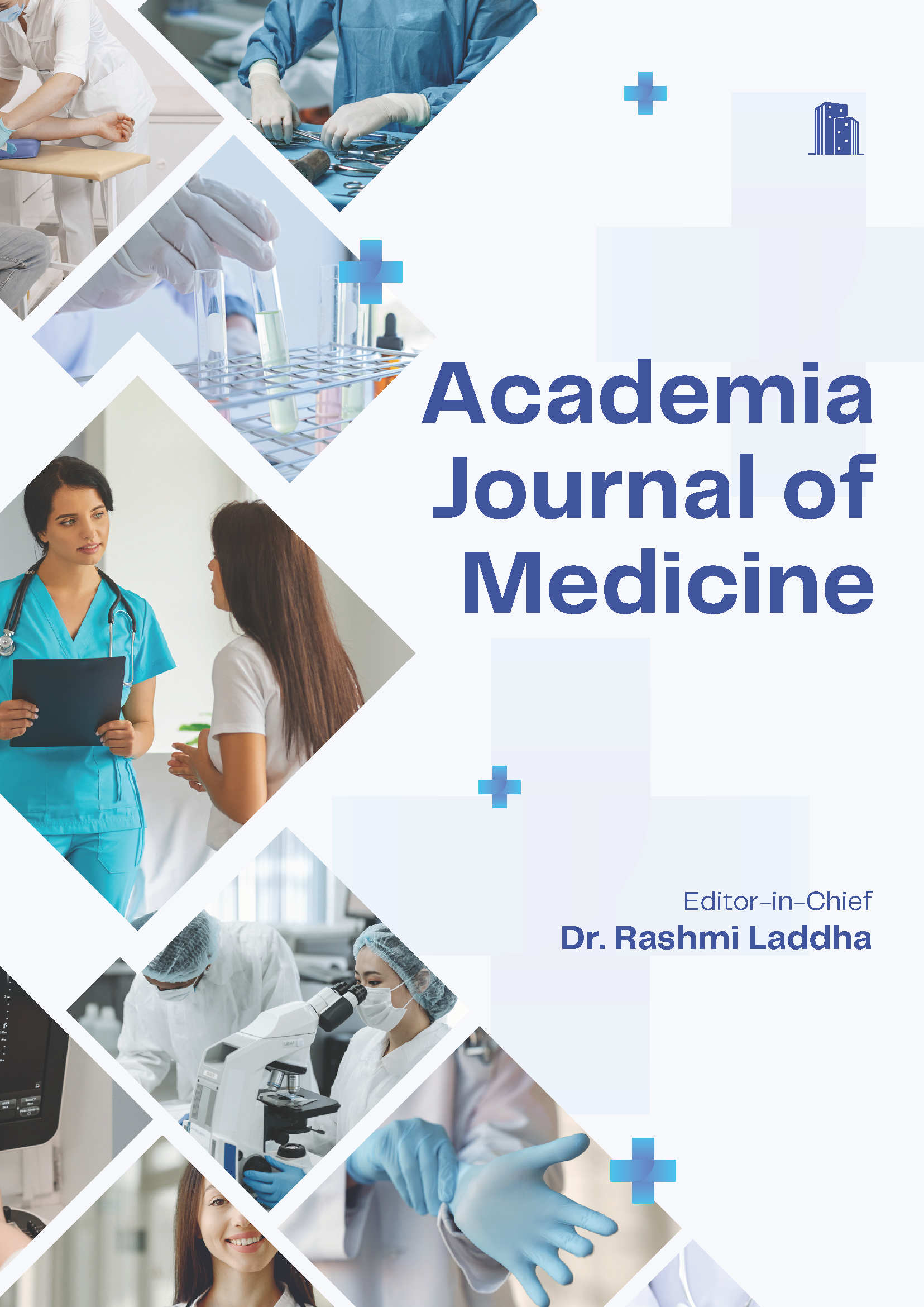Evaluation of Cardiac Markers in Patients with Myocardial Infarction
DOI:
https://doi.org/10.48165/zwqxt812Keywords:
Acute myocardial infarction, Cardiac markerAbstract
Background: One of the major causes of morbidity and mortality worldwide is acute myocardial infarction (AMI). Various cardiac markers have been used from time to time for assessing the diagnosis and prognosis of the disease. Hence; we planned the present study to evaluation of cardiac markers in patients with myocardial infarction. Subjects and Methods: The present study included assessment of different cardiac markers in patients with myocardial infarction. For the present study, ethical approval was obtained from the ethical committee of the institution, and written consent was obtained after explaining in detail the entire research protocol. A total of 20 AMI patient and 20 healthy controls were included in the present study. Fresh blood samples were taken and mean serum creatine kinase (CK), and cardiac troponin (CT) values were assessed and compared. All the results were analysed by SPSS software. Chi- square test was used for assessment of level of significance. Results: Mean value of CK-MB among the patients of the AMI group and the control group was 28 IU/L and 18 IU/L respectively. Mean value of CT among the patients of the AMI group and the control group was 4.8 ng/L and 0.5ng/L respectively. The cardiac biomarkers were found to be significantly raised among the AMI patients in comparison to the healthy controls. Conclusion: These biomarkers are assessable biological variables which function as indices for health analysis.
References
1. World Health Organization (WHO) working group, corp-author. The establishment of ischaemic heart disease registers (report of the fifth working group) WHO Reg Publ Eur Ser, Copenhagen. 1972;821(suppl 5)
2. Wroblewski F., la Due J. S. Lactic dehydrogenase activity in blood. Proceedings of the Society for Experimental Biology and Medicine. 1955;90:210–213.
3. Jennings RB, Reimer KA. Factors involved in salvaging ischemic myocardium: Effect of reperfusion of arterial blood. Circulation. 1983;68:I25–I36.
4. Hanley JA, McNeil BJ. A method of comparing the areas under receiver operating characteristic curves derived from the same cases. Radiology. 1983;148:839–843.
5. Libby P, Ridker PM, Maseri A. Inflammation and atherosclerosis. Circulation. 2002;105:1135–1143.
6. Faergeman O. Genes and cardiovascular risk. European Heart Journal. 2013;34(13):949–950.
7. Latronico M. V. G., Catalucci D., Condorelli G. Emerging role of microRNAs in cardiovascular biology (review) Circulation Research. 2007;101(12):1225–1236.
8. Tevaearai Stahel HT, Do PD, Klaus JB, Gahl B, Locca D, Göber V, Carrel TP. Clinical Relevance of Troponin T Profile Following Cardiac Surgery. Front Cardiovasc Med. 2018;5:182.
9. Alpert J. S., Thygesen K., Antman E., et al. Myocardial infarction redefined—a consensus document of the Joint European Society of Cardiology/American College of Cardiology Committee for the redefinition of myocardial infarction. Journal of the American College of Cardiology. 2000;36:959–969.
10. Ong P, Athanasiadis A, Hill S, Vogelsberg H, Voehringer M, Sechtem U. Coronary artery spasm as a frequent cause of acute coronary syndrome: the CASPAR (Coronary Artery Spasm in Patients With Acute Coronary Syndrome) Study. J Am Coll Cardiol. 2008;52:523–527.
11. Smolders VF, Zodda E, Quax PHA, Carini M, Barberà JA, Thomson TM, Tura-Ceide O, Cascante M. Metabolic Alterations in Cardiopulmonary Vascular Dysfunction. Front Mol Biosci. 2018;5:120.
12. Morrow DA, Cannon CP, Rifai N. Ability of minor elevations of troponins I and T to predict benefit from an early invasive strategy in patients with unstable angina and non-ST elevation myocardial infarction: results from a randomized trial. Journal of the American Medical Association. 2001;286(19):2405–2412.
13. Karmen A, Wroblewski F, La Due JS. Transaminase activity in human blood. J Clin Invest. 1955;34:126–31.Hashimoto H, Abendschein DR, Strauss AW. et al. Early detection of myocardial infarction in conscious dogs by analysis of plasma MM creatine kinase isoforms. Circulation. 1985;71:363–69.
14. Lee TH, Goldman L. Serum enzyme assays in the diagnosis of acute myocardial infarction. Recommendations based on a quantitative analysis. Ann Int Med. 1986;105:221–33.
15. Jaffe AS, Garfinkel BT, Ritter CS. et al. Plasma MB creatine kinase after vigorous exercise in professional athletes. Am J Cardiol. 1984;53:856–58.
16. Lee TH, Weisberg MC, Cook EF, Daley K, Brand DA, Goldman L. Evaluation of creatine kinase and creatine kinase-MB for diagnosing myocardial infarction. Clinical impact in the emergency room. Arch Intern Med. 1987 Jan;147(1):115-21.

